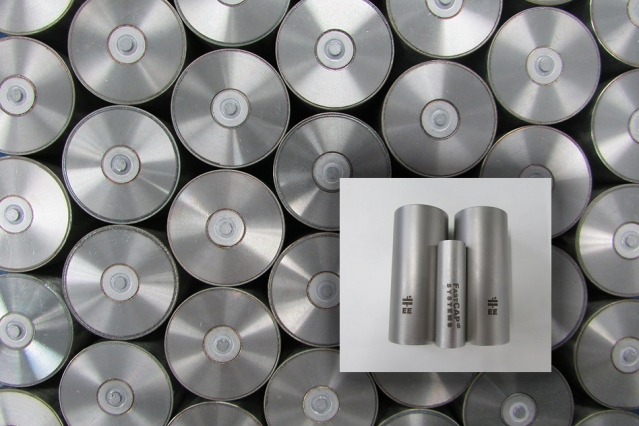Original article appeared on www.nextbigfuture.com on September 8th 2016. Click here to view the original article.
But MIT spinout FastCAP Systems is developing ultracapacitors, and ultracapacitor-based systems, that offer greater energy density and other advancements. This technology has opened up new uses for the devices across a wide range of industries, including some that operate in extreme environments.
Based on MIT research, FastCAP’s ultracapacitors store up to 10 times the energy and achieve 10 times the power density of commercial counterparts. They’re also the only commercial ultracapacitors capable of withstanding temperatures reaching as high as 300 degrees Celsius and as low as minus 110 C, allowing them to endure conditions found in drilling wells and outer space. Most recently, the company developed a AA-battery-sized ultracapacitor with the perks of its bigger models, so clients can put the devices in places where ultracapacitors couldn’t fit before.
FastCAP's Vertically Aligned Carbon Nanotubes (VA-CNTs) are grown on Stainless Steel and Silicon substrates.
FastCAP Systems' ultracapacitors (pictured) can withstand extreme temperatures and harsh environments, opening up new uses for the devices across a wide range of industries, including oil and gas, aerospace and defense, and electric vehicles. Courtesy of FastCAP Systems
In the late 2000s, the FastCAP founding team had a breakthrough: They discovered that a tightly packed array of carbon nanotubes vertically aligned on the electrode provided much more surface area. The array was also uniform, whereas the porous material was irregular and difficult for ions to move in and out of.
In 2014, FastCAP deployed its first commercial product. The Ulysses Power System is an ultracapacitor-powered telemetry device, a long antenna-like system that communicates with drilling equipment. This replaces the battery-powered systems that are volatile and less efficient. It also amplifies the device’s signal strength by 10 times, meaning it can be sent thousands of feet underground and through subsurface formations that were never thought penetrable in this way before.
After a few more years of research and development, the company is now ready to break into aerospace and defense. In 2015, FastCAP completed two grant programs with NASA to design ultracapacitors for deep space missions (involving very low temperatures) and for Venus missions (involving very high temperatures).
In May 2016, FastCAP continued its relationship with NASA to design an ultracapacitor-powered module for components on planetary balloons, which float to the edge of Earth’s atmosphere to observe comets. The company is also developing an ultracapacitor-based energy-storage system to increase the performance of the miniature satellites known as CubeSats.
FastCAP has pioneered extreme environment ultracapacitor technology. Today, FastCAP is the only company with ultracapacitors capable of high temperature (over 125°C), low temperature (less than -40°C), and hermetically sealed capacitors capable of enduring the space environment. FastCAP’s technology has been validated from -110°C to 250°C by Sandia National Laboratory.
FastCAP also offers capacitors ruggedized against extreme shock and vibration for energy, defense, automotive, and aerospace applications with vibration survival in excess of 20gRMS and shock survival of 500g.
FastCAP technology excels in environments where other energy storage fails.










